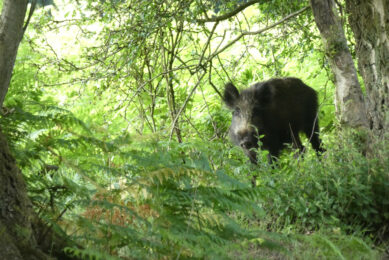Collecting PRRS samples in pigs? Use cotton ropes

Researchers from the Belgian research institute Coda-Cerva and the University of Ghent have established that using cotton ropes is an appropriate way of collecting PRRS samples.
Using ropes for sampling oral fluids is already known as a well-known method – and has the potential to replace serum for monitoring and surveillance of important swine pathogens, like Porcine Reproductive and Respiratory Syndrome (PRRS). Until now, the most commonly used method is by hanging a cotton rope in a pen.
Six different rope materials evaluated
Using cotton, however, has been questioned as the rope material might influence subsequent immunological assays. The researchers therefore evaluated six different rope materials for the collection of oral fluid and the subsequent detection of total and PRRSv-specific antibodies of different isotypes in oral fluid collected from PRRSV-vaccinated and infected pigs.
The review in BMC Veterinary Research states that an initial experiment showed that IgA is the predominant antibody isotype in porcine saliva. Moreover, it was found that synthetic ropes may yield higher amounts of IgA, whereas all rope types seemed to be equally suitable for IgG collection.
IgG a more reliable isotype for monitoring PRRSv-specific antibody immunity
Although IgA is the predominant antibody isotype in porcine oral fluid, the PRRSv-specific IgA-based IPMA and ELISA tests were clearly not ideal for sensitive detection of PRRSv-specific IgA antibodies. In contrast, PRRSv-specific IgG in oral fluids was readily detected in PRRSv-specific IgG-based IPMA and ELISA tests, indicating that IgG is a more reliable isotype for monitoring PRRSv-specific antibody immunity in vaccinated/infected animals via oral fluids with the currently available tests.
Since PRRSv-specific IgG detection seems more reliable than PRRSV-specific IgA detection for monitoring PRRSv-specific antibody immunity via oral fluids, and since all rope types yield equal amounts of IgG, it seems that the currently used cotton ropes are an appropriate choice for sample collection in PRRSV monitoring.
The research was carried out by Inge Decorte, Wander Van Breedam, Yves Van der Stede, Hans J. Nauwynck, Nick De Regge and Ann Brigitte Cay.











